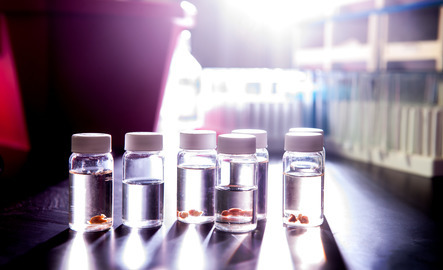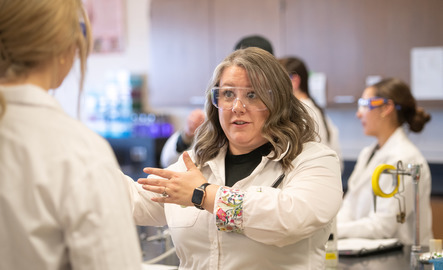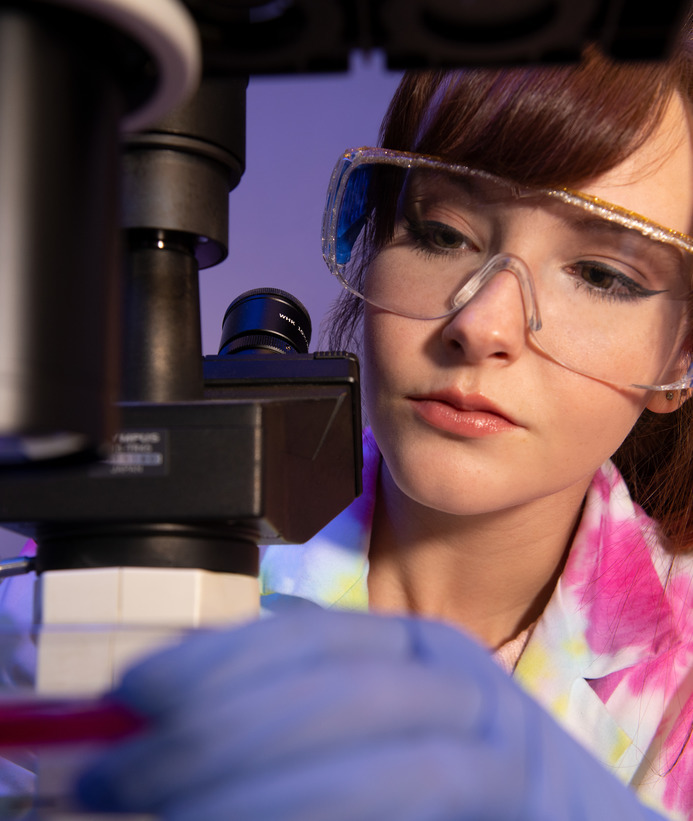About Biomedical Sciences at UW
The University of Wyoming has been relentlessly curious about scientific discovery
since 1886. With a doctoral degree in biomedical sciences, you'll be on the frontier
of research to a range of topics including genetic variations, cell dynamics and behavioral,
epidemiology, metabolic, nutritional, environmental and pharmaceutical variables,
just to name a few.
As a Ph.D. student in biomedical sciences, you will be part of a program that is deeply
committed to collaboration, student engagement and fostering each student’s growth.
You will have the opportunity to teach undergraduate courses, collaborate with faculty
on research projects and develop as a scholar in your own right.

Work with graduate program faculty who are world-class scholars and experts in these and other areas:
- Molecular mechanisms of cardiovascular disease and diabetes
- Advanced carbon materials, spider silk biomaterials, SERS biosensors and immobilized enzyme systems
- Advanced exercise physiology

What Can You Do With a Biomedical Sciences Doctoral Degree?
Whether you want to work in an academic setting, health care facility or industry, you'll develop the skills necessary for a leadership role and competitive success in the biomedical science arena.
- Research scientists
- Post-doctoral fellows
- Administrators
- Academicians
- Linfield University
- University of Wyoming
- National Institutes of Health
- Cytokinetics
- BlueRock Therapeutics
- QurAlis
Xihui "Alex" Xu, Ph.D.'13, is a Scientist II at Cytokinetics, Inc., in San Francisco
and formerly an IRTA Fellow at the National Institutes of Health.
Yinan Hua, Ph.D. '14, recently presented her study on the treatment outcomes of neoadjuvant
chemotherapy in HER2-positive invasive breast cancer patients to the Texas Society
of Pathologists.
- Pharmaceuticals & Biotechnology
- Medical Devices
- Healthcare & Hospitals
- Government & Public Health
- Academia
- Consulting
- Bioinformatics & Data Science
- Science Communication & Policy


